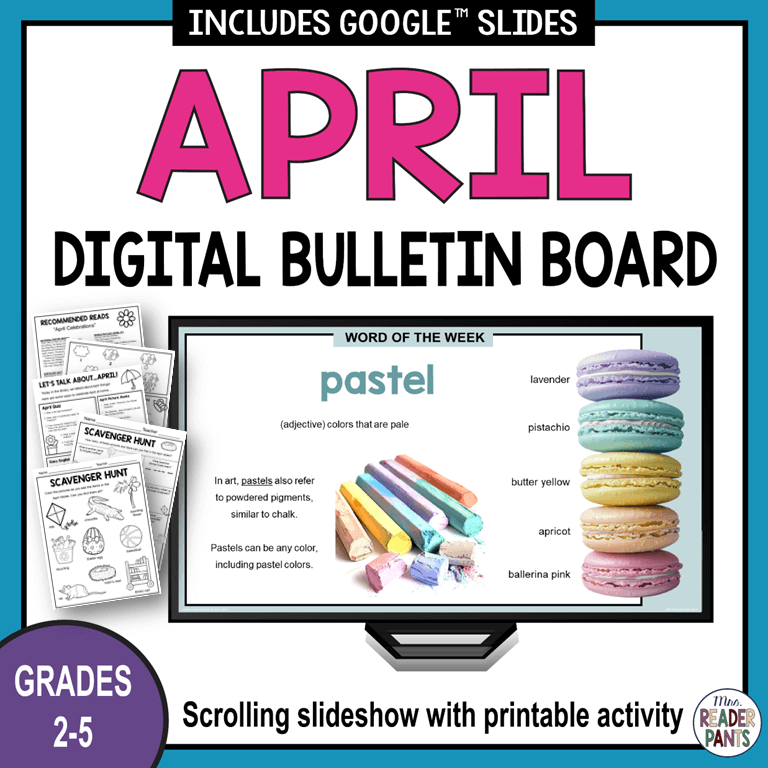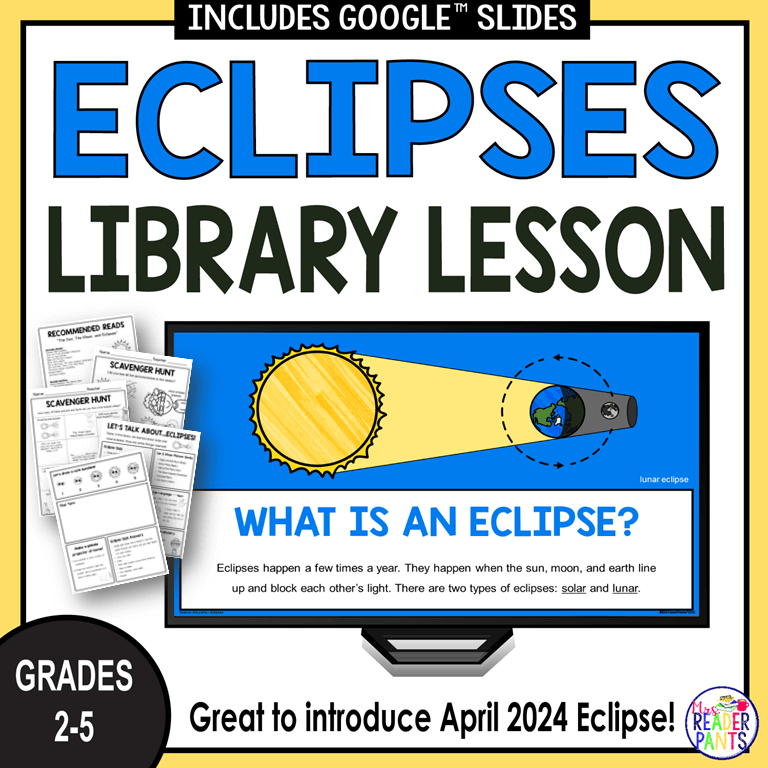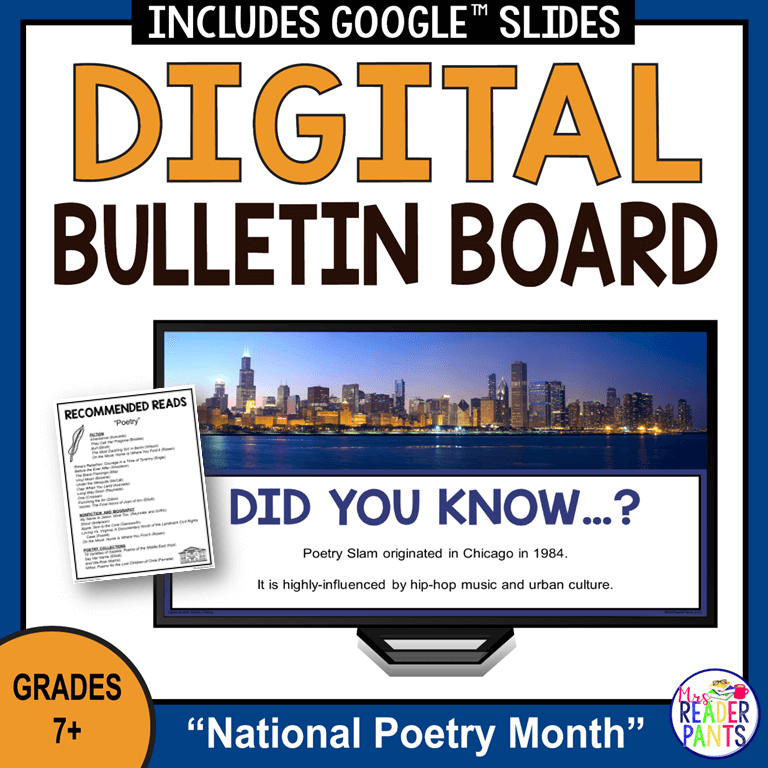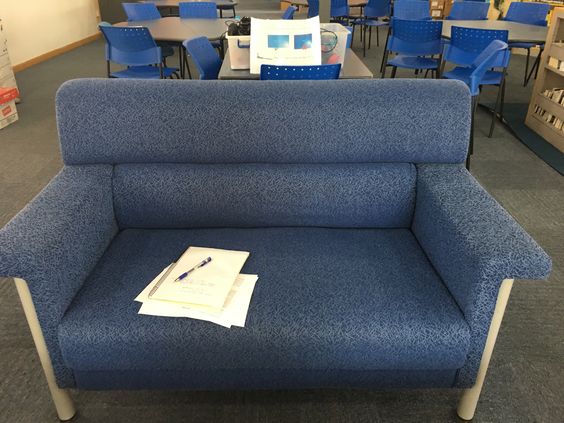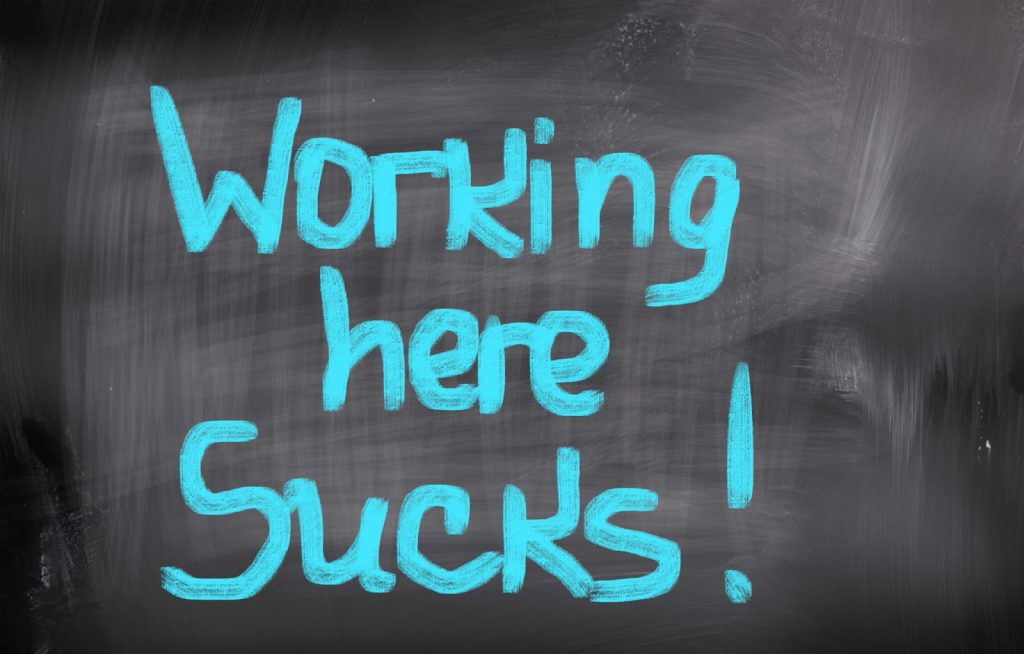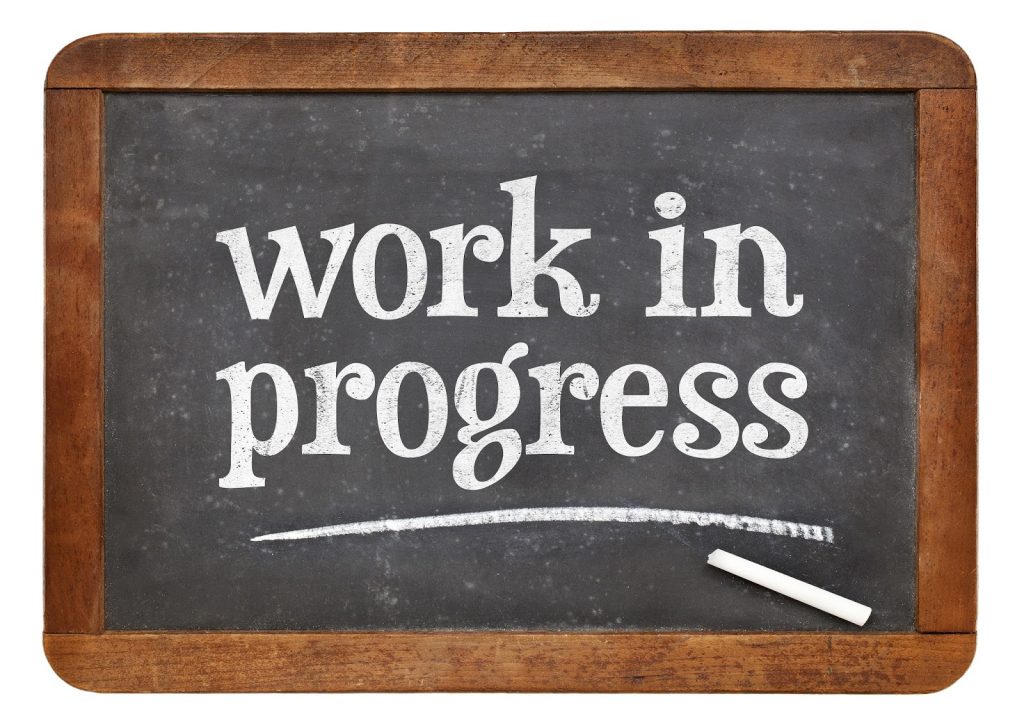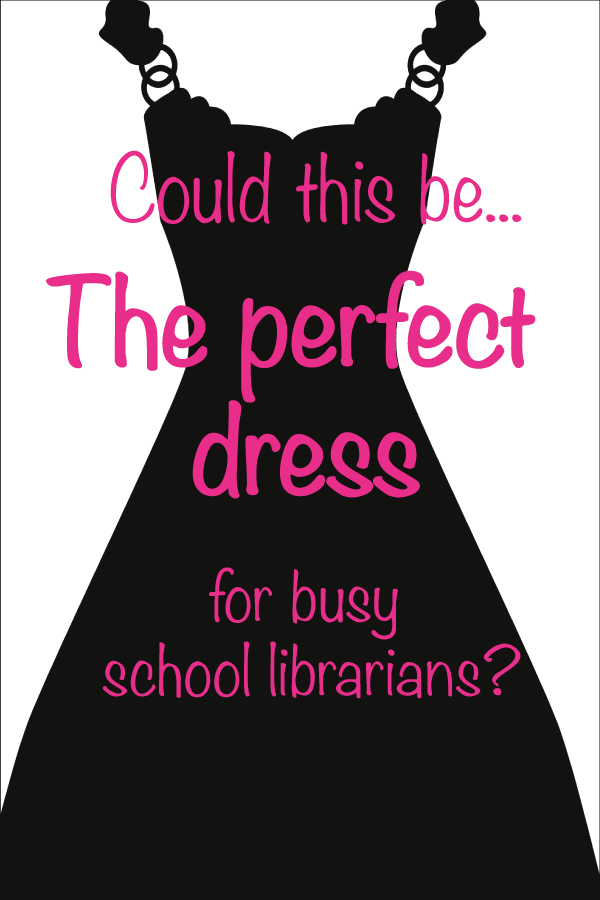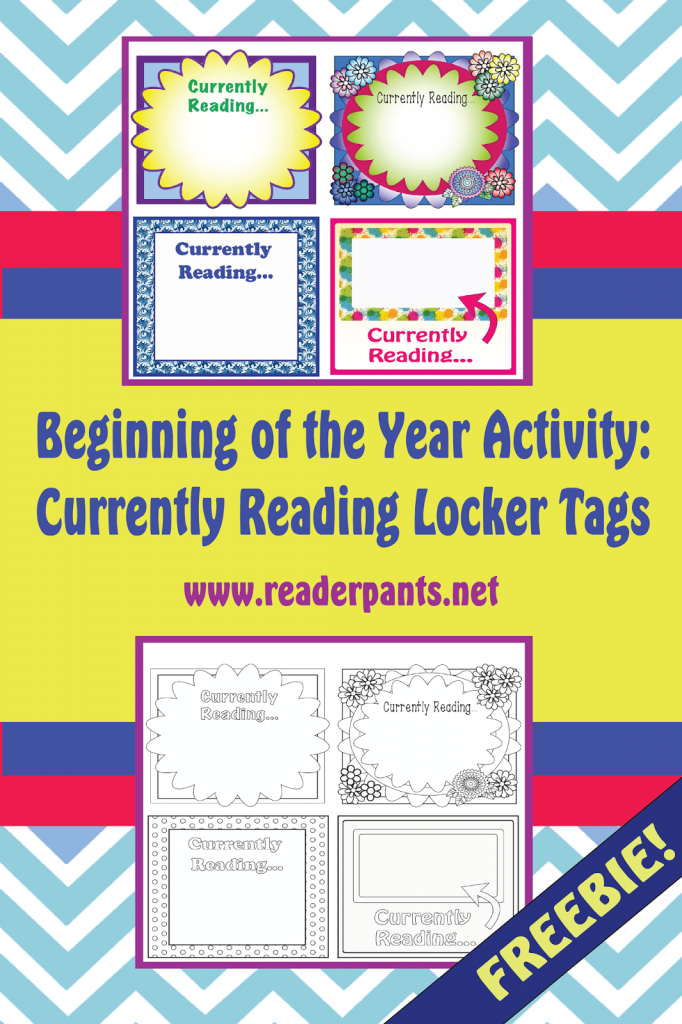![]()
Wait…what? Did I miss something? Why is Mrs. ReaderPants posting an article about the first days of school…in the middle of December?
As we approach Winter Break, I realized I haven’t written many blog articles lately. I moved to a new city and started in a new-to-me library this year. I’ve been too busy to do much blog writing beyond my infamous New Releases posts and a couple of random book reviews. I’m about 10 book reviews behind, and they may never get written at this point. It’s been an exhausting few months, but Winter Break looms large and lovely on the horizon…only one more week to go!

(If you need me this Christmas Break, I’ll be here…)
In looking through my draft blog posts from the past few months (I am terrible about starting things and not finishing!), I found this little gem about my first days in my new school library. I just got busy and never polished it up for posting. Four months later, I am having a chuckle at my advice for new-to-their-school librarians. All of this is so accurate! In fact, I am still dealing with some of these issues four months later. For example, in my oh-so-awesome advice about not taking No for an answer…I just yesterday got approved to buy a new flatscreen TV for the library, a request that was turned down just three months ago. I made another plea, and it happened! My new TV has been ordered and should arrive before we leave for the holiday break.
So instead of saving this great information for the start of next school year, I am instead posting it in December. Some of you may be starting new school library jobs in January. And some of you may be like me and still dealing with new-to-you library issues. It is my hope that this article can help give you focus and perspective in the new year. As we push ourselves to the Winter Break Finish Line, it can be helpful and inspiring to look back at all we’ve accomplished so far this school year. You’ve come a long way in a short time, and while I’m sure the road has been bumpy and full of obstacles, you deserve to feel proud of all you’ve done so far.
The post below was originally written in August, 2017:
![]()
This week, I started working at my fifth school library. I’ve made the rounds! I’ve worked in two elementary libraries in Texas, one middle school library in Texas, and now two different secondary libraries (6-12) in China. And guess what? It never gets easier to start a new school. Sure, it’s exciting to meet new people, develop a vision for the new library, and generally become the rockstar librarian the school desperately needs you to be. I’m bursting with ideas and design changes I want to make and fun ways I plan to bring more students into the library. I’m stalking my favorite library boards on Pinterest, making lists of ideas, and–my favorite–making lists of books I want to order for the library. This is the fun part, y’all!
But first things first. Every day this week, I’ve had teachers asking me questions I don’t know the answers to. Did we purchase this database they requested last year? When will textbooks be ready? When can students check out books? I’ve had well-meaning teachers “warning” me about things I will have to deal with (more on that in a minute). I have a late-June server crash that caused our Destiny catalog to lose two years of data over the summer. Over 20,000 books (many are textbooks) are uncataloged, and any student who has enrolled in the school since 2015 is no longer in our system. The school has this weird 6-day rotating schedule that I can’t quite wrap my head around just yet. So much to take in!
So last week was the week our teachers returned from summer break. I had already been at school for the week prior because I was a new teacher. On Monday, we were surprised with an entire afternoon of classroom time. This is a fabulous gift from our administration–we never get enough classroom time before school starts, right? So, I go into my library and take a deep breath. It’s go time!
But as I stood there, I thought, where to begin? What can I do today to prepare for our family orientation day this Friday? What can I do today to prepare for the First Day of School? What is needed most?
The point here is that even though I have been the new person at five different libraries, I still experience this feeling of “What do I do now?” If you are a new librarian, know that you are not alone in this feeling. I’m a seasoned school librarian, and I still can’t decide where to start.
So on this first day to work in my library, I sat down with a notebook and pen and brainstormed all the things I and other librarians at new-to-us schools can start with. This list will work with any library, at any level. There are a million things to do, but this will at least get you started…
![]()
Grab a notebook. Keep it handy.
In your notebook, create pages for:
- Questions you have
- Questions others ask you that you can’t answer (be sure to write the teacher’s name so you can get back to them)
- Things you need to do ASAP
- Things you want to do soon (but are not urgent)
- Ideas for lessons

Be prepared for questions you don’t know the answer to.
Expect to get lots of questions that you can’t answer yet. When someone asks you a question you can’t answer, grab your notebook and take notes. Get their name (write it down!), and find out when they need an answer. If appropriate, ask the person what was done in the previous year. Did that work for them? What could make it better? Spend this time listening and asking questions. Do not commit to anything you aren’t sure about. If you are stuck, tell the person you will think about it or that you will get more information and get back with them. Be careful of making promises you might not be able to keep.
![]()
Expect to hear “warnings.”
Oh, this has been really annoying this week! So far, I’ve heard “warnings” about challenging student behavior, a specific administrator who is supposedly difficult to work with, and that I’m going to get complaints from teachers about migrating the library calendar to Outlook. I’m sure the teachers who give me warnings mean well, but honestly, what they are really telling me is that they find student behavior challenging, they find a particular administrator difficult, and they don’t like the switch to Outlook calendars.
Really, these “warnings” are thinly-veiled negativity disguised as helpful advice for the new person. Anyone who has worked in education for any reasonable amount of time (like a week or two) has already dealt with plenty of challenging students, administrators, and teachers. With 17 years of education and a total of six schools behind me, odds are good that I have at least as much (or more) experience than the person giving me the warning. In my experience, these warnings sometimes pan out, and sometimes they do not. The fact is, you can’t really do anything much to change these things anyway. Really, school hasn’t even started yet. What can you do to change poor student behavior right now? How could you possibly change an administrator’s style and personality? How can you force teachers to happily embrace a scheduling change you are implementing in your very first week?
You can’t. People are people, after all. Your students–even those from the best families and home environments–are going to misbehave from time to time. Some school administrators are ineffective leaders and nothing you say or do will make them “get it.” And some of your co-workers just plain won’t like you, no matter what you do. The real warning should be that you are dealing with people, and some people will try your patience more than others.
So please take any warnings you get with a grain of salt. Just because this person struggles with a particular administrator or student behavior or way things are done does not mean you will also struggle with it. Keep an open mind. Make your own judgments. Do what you need to do.
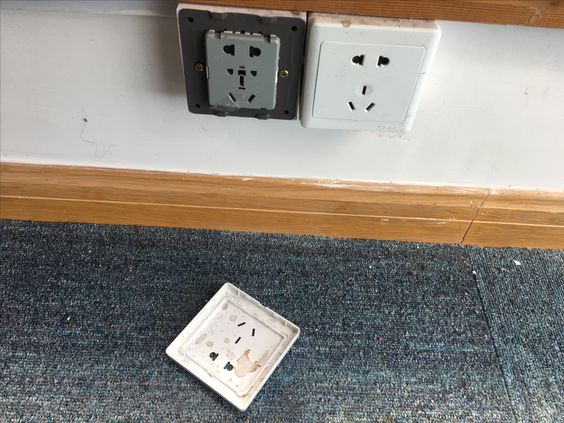

Look for safety issues.
Student safety is critical, and in China, we have to watch for poor construction and safety hazards constantly. Examine your library for things that need immediate attention:
- uncovered electrical outlets
- outlets that don’t work
- tripping hazards
- water damage/mold (If there have been leaks, is that still happening? Is there mold?)
- bugs or other pests
- lights that flicker or don’t work
- broken or nearly-broken furniture
- AC and heat that doesn’t work
- in China, air pollution levels, open gaps under doors/windows, and the presence of air purifiers
Take your list to someone who can help you get these things repaired. You will probably have to ask around to figure out how to report maintenance issues. Make sure you put your list in writing so you have a record of what items needed repair and when it was requested. Follow up in a few days if the list isn’t addressed. Safety is paramount, and you may have to be persistent. Fixing maintenance problems doesn’t mean you won’t ever have a student injury in the library, but you absolutely should do whatever you can to prevent it. Especially if you are in China, where half-assed construction and building repairs seem to be the norm. Follow up!
![]()
What technology do you have access to?
Look at your speaking/presentation area. Is there one? Are there working speakers? Is there a screen or TV? Do you have the cables needed to hook up your computer for presentations? Do you have laptops? Tablets? Extra charging cables for students and staff to use as needed? Are you in charge of checking out/maintaining technology? Is the school BYOD?
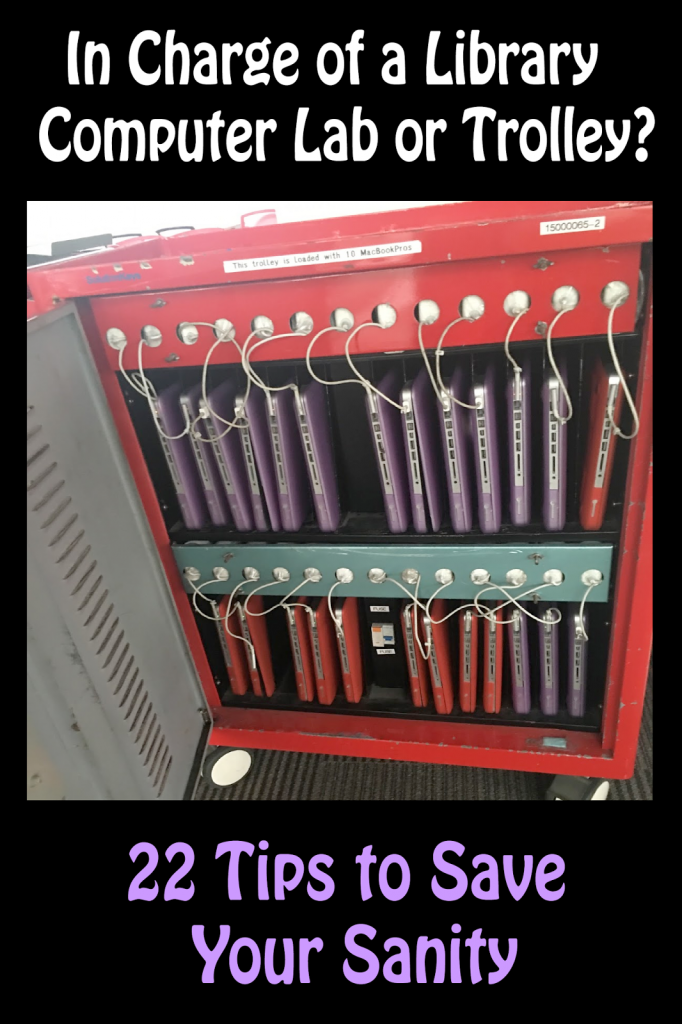 If you are in charge of laptops or a computer lab, you need to get a handle on that ASAP. It’s so important that I recommend you set up that booking system within your first few days, ideally, on your very first day. Your ability to fairly organize computer lab/trolley bookings is a golden opportunity to show teachers you are someone they can rely on to get it right…or not. Unfortunately, unknown-to-you campus politics can factor heavily into the booking of school computers, and there will be times you need to be assertive. I talk more about the politics and pitfalls of computer booking in “Feeling Stressed About Your Library Computer Lab or Trolley? 22 Tips to Save Your Sanity.”
If you are in charge of laptops or a computer lab, you need to get a handle on that ASAP. It’s so important that I recommend you set up that booking system within your first few days, ideally, on your very first day. Your ability to fairly organize computer lab/trolley bookings is a golden opportunity to show teachers you are someone they can rely on to get it right…or not. Unfortunately, unknown-to-you campus politics can factor heavily into the booking of school computers, and there will be times you need to be assertive. I talk more about the politics and pitfalls of computer booking in “Feeling Stressed About Your Library Computer Lab or Trolley? 22 Tips to Save Your Sanity.”
![]()

Decide on your library expectations.
Everyone knows that running isn’t allowed in the library. They know that books should be checked out, taken care of, and returned on time. These are obvious expectations that yes, still should be stated and/or displayed, but you won’t generally have questions about these. But you do have some tough decisions to make. Will you allow cell phone use? Is gaming allowed? Will you expect students to stay very quiet in the library? Where can they collaborate in groups? What are procedures for booking study rooms? What are the library hours? For how long will you keep the library open before and/or after school? Will you allow food and drinks? If you are undecided, I suggest making the policies as easy for you to enforce as possible. If cell phones and gaming aren’t allowed, will you be able to enforce that? If drinks/food/backpacks aren’t allowed, where should students put these things if they do bring them in? If there are no library cubbies for your students’ stuff, it will inevitably pile up by the door or in the hall.
![]()
How do students login? How do they print?
If you have a printer or copier in your library, students and teachers will ask questions about logging in and printing every single day. Familiarize yourself with the basics of what the logins are, the names and locations of the nearest printers, and how to print a document. Practice by printing your own documents, including how to print and copy in color, front-to-back, and in different sizes. Don’t forget to find out where extra paper is stored. You also need to find out the school’s previous policies on printing charges. I personally think students should be able to print schoolwork for free, though I’ve been in schools that charged for all printing, even if it was school-related. What should you do if students print out party invitations? Locker pin-ups of their favorite boy band? And what about teachers who print 150 copies of their class syllabus because they forgot to turn in the copy request 24-hours in advance? These are all things I’ve encountered many times in school libraries.
![]()
Familiarize yourself with the library databases.
Hopefully, databases are an important part of your library program already, but I’ve also seen schools subscribe to expensive databases that were barely used. If database use at your school is low (you can check usage stats for many of them), it’s likely because teachers and students do not know they are available. Or, even more likely, they do not know how great they are or how to use them. Guess who gets to teach them how to use the databases this year? YOU! A to-do list for databases in your first couple of weeks:
- Find the links. If a student or teacher wants to use a particular database, where can they go to find the links? The links should at minimum be on the library webpage and if your OPAC allows it, on your library catalog page. My database links were already on our Destiny homepage and the library wiki. I also created a printed tri-fold brochure of database descriptions, URLs, and logins available on the circulation desk. I didn’t do that right away though, so don’t bother making one up until you have some time to breathe.
- You may have links set up already, but do they work? Mine didn’t! I had to email a few vendors to find out the correct links and logins.
- Do you know all the passwords? At my current school and my previous school, we had about 12 different logins for 12 different databases. My first order of business was to email the vendors and change all the logins to one easy-to-remember login. I warned my teachers I would be doing this so they would not be locked out of their favorite database. But to me, this change is a MUST. Students and teachers have enough logins to remember. It took me only about a week of emailing vendors to change our logins to one simple login. If you are in a school district and not in charge of your own database logins, talk to your library coordinator (or whoever sets up and pays for the databases) to see if this can be corrected. Volunteer to do it yourself if you must–it’s worth it!
- I’ve mentioned emailing database vendors a few times now. If you are in charge of your own databases (as is the case in many international schools), you need to figure out who your vendor contacts are. If you are lucky, the previous librarian left this information for you (mine did!). But it’s also quite possible you will have nothing to go on at all. Google the vendor’s name, find their sales contact form, and send them a message. It may take a couple of days to get a reply since these are usually online contact forms and not direct contacts, but they will almost always email you back within a day or two.
![]()
Be mindful of how your school handles change.
This one is so tough for me. The librarian I replaced had worked at this school for eight years, more than many of our faculty members and even some of our administrators. Things were done a certain way for quite a long time (eight years is a VERY long time in an international school–teachers tend to hop around a lot). I have come into my new school this year, and I see so many ways I want to change the library. The school hired me for my ideas and what I can do for the school. Believe me, I do still plan to do all these things, but I can already tell that some of my teachers are sensitive to “too much” change at once. This isn’t all the teachers, but I have already had a little push-back from a couple of more vocal teachers. Of course, I still plan to make my changes, no doubt about that. But I can already tell that it may be too much, too quickly, and I need to be mindful of that.
![]()
Rome wasn’t built in a day.
This is another one that can be so tough! It’s easy to get into our new libraries and be overwhelmed by all the 1487 things we want/need to do. I look around my new library this week and think we need better signage, a LOT more color, and new shelving. I want a makerspace area, yet I have no supplies at all. Our nonfiction section is really, really small–it couldn’t possibly support a robust IB curriculum. Ditto with the graphic novels section. There are also something like a million books I love that we do not currently have. Breathe! You will be able to build the library you want. You will make it fantastic…eventually. Hang in there, and be sure to lobby for the things you want and need. You never know when you will get a yes! I’ve been pleasantly surprised many times in the past when I asked for something and actually got it. If you never ask, you will never get it. And if the answer is no, keep in mind that the answer is only no TODAY. In most cases, it’s not NO forever and ever. Keep asking, keep dreaming, and as my Dad likes to say, “Keep on keepin’ on!”
![]()
Say YES as much as possible.
Look at these two words: YES and NO. Doesn’t the YES just seem to smile? Doesn’t the NO look like closed lips, puckered together? Puckered sour-face lips cause wrinkles! Keep this in mind when teachers, students, and administrators request things of you. In all situations, a YES answer should be your goal. Your teachers and students need you, and they do not (usually) make completely off-the-wall requests. Even when you can’t say YES, try to give your NO as an alternative or compromise, rather than a flat-out NO. As a newbie, you do not know your school just yet. Maybe the request someone has is a good request, even if your first inclination is to say no. If you find yourself backed into a corner, ask for a day or two to think about how you can best support this person. Being new has its advantages because you can say you need to figure out how things work around here. Unless they are absolutely awful, most teachers will understand that you are new and want to get the lay of the land before making big decisions.
![]()
When in doubt, smile!
Think about the people you most love interacting with at work. Are these people positive? Happy? Do they smile and make you feel warm inside? Smiling not only makes you look more approachable; it also will make you feel better. Try it right now! See? You feel better already, right? In the end, you are only human, and so are the people you work with. No, you do not know all the answers. Right now, I barely know any answers. But you know what’s amazing? All those answers you don’t know, you can usually send an email or ask a colleague, and then you WILL know the answers. Most people will be happy to help you. So when someone asks you a question you can’t answer, smile and say you don’t know, but you will find out.
![]()

